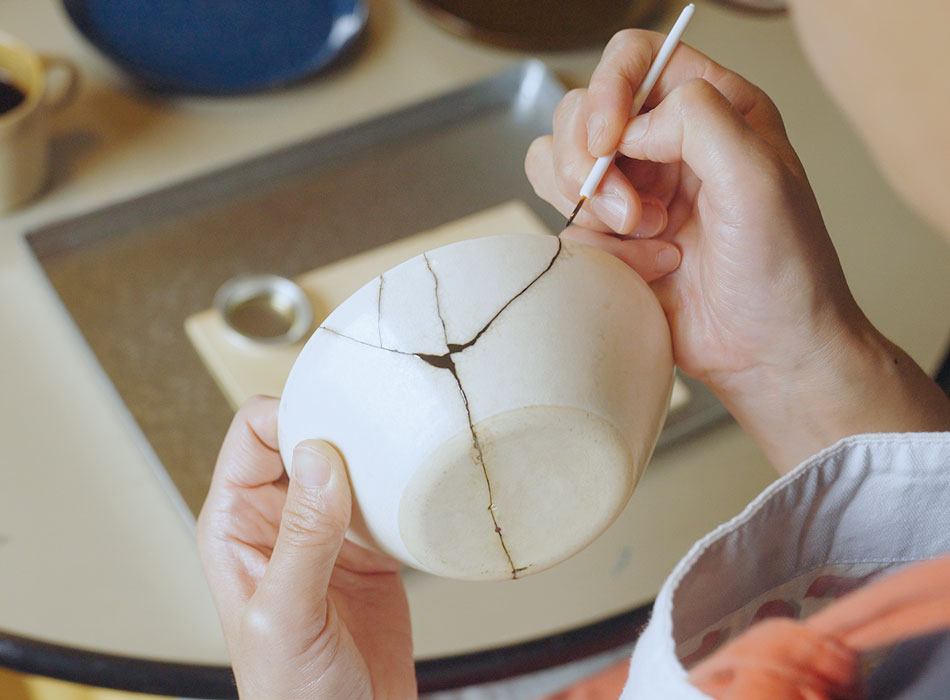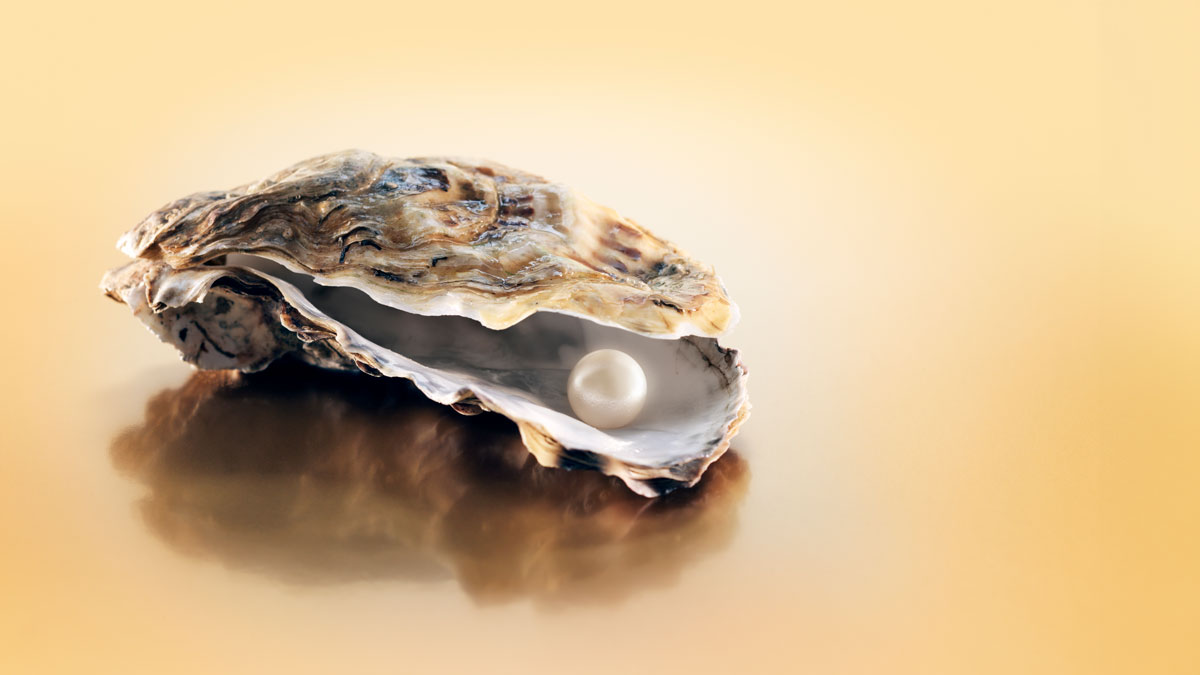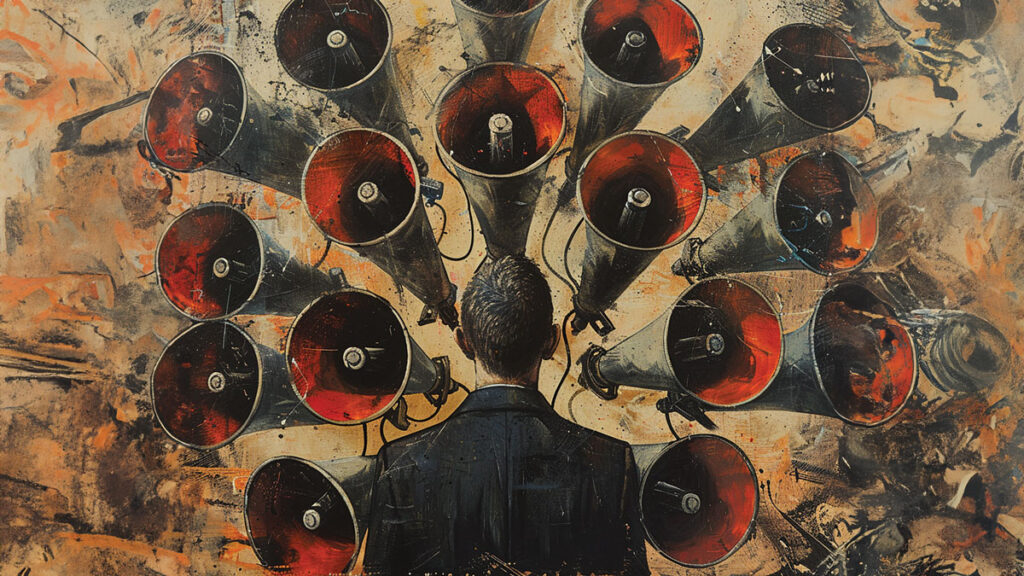Many years have passed, and my happy little oyster clings to its rock in a tiny corner of a great ocean with its community of oyster siblings nearby. There is nothing particularly remarkable about my oyster—just an ordinary oyster. Well, actually, there are exciting things about my little creature that could command many lifetimes of study to unlock its mysteries.
Did you know, for example, that oysters are vegetarian? They eat algae by filtering it out of the water. They draw water into their bodies and remove tiny phytoplankton. Did you know that a single adult oyster can filter 150 litres daily?1That’s about as much water as you would use in a 10-minute shower. Collectively, many oysters can help improve water clarity, which benefits the aquatic vegetation, which depends on light to photosynthesise. Did you know that all oysters start life as male, but most will change permanently to female after about a year? Their reproductive organs produce both sperm and eggs, giving them the capability to change gender. It is, therefore, possible for an oyster to fertilise its own eggs.2
So, what do I mean by there being ”nothing particularly remarkable” about my oyster? Well, my little oyster has been living in a perfect world, so there has never been a hint of a pearl growing inside my oyster’s shell or in any other oyster’s shell. Why? Because pearls only grow in response to an irritation. So, in this perfect oyster world, no-one has ever seen a pearl. No-one even has a word for pearl because no such thing exists or ever has existed.
Then there is that moment. That indescribable event, which, to an outside observer, does not seem cataclysmic because it is such a tiny thing. For our oyster, it is an irritant that enters its shell—something little, but oh, how annoying. This little irritant begins to spoil life inside the shell. Can this annoyance be expelled or destroyed? The oyster makes an attempt, but sometimes, it can do nothing to rid itself of the problem.
Now consider that pivotal moment.
In the context of the kingdom of heaven, there was such a moment—a moment Paul calls the mystery of iniquity3—a moment when somebody challenged God’s kingdom of love. At first, it must have seemed such a little thing—much like a seed. If the seed falls on a path, that is the end of it. It does not take root. It does not grow. If it does take root, however, who can know the outcome?
What was the result of this challenge to the kingdom of heaven event? ”The great dragon was hurled down—that ancient serpent called the devil, or Satan, who leads the whole world astray. He was hurled to the earth, and his angels with him” (Revelation 12:9). Satan shockingly gained a foothold on earth through Adam and Eve’s choice—a foothold that resulted in hurt, pain and loss.
Did God know about the possibility of this moment? Its eventuality? If so, why did God allow that moment to happen? Or, at the very least, why did God not eliminate the problem then and there and restore things to tranquil perfection?

In the Avengers: Endgame superhero film, a piece of dialogue plays with this question of stamping out the evil as we see it.
Thanos: I know what I must do. I will shred this universe down to its last atom. And then, with the stones you’ve collected for me, create a new one—teaming with life—that knows not what it has lost but only what it has been given—a grateful universe.
Captain America: Born out of blood.
Thanos: They’ll never know it because you won’t be alive to tell them.
Could a loving being live with such an action? Could God have implemented a restart? No-one knows—the answer lies deep within God’s heart.
The 2002 movie Minority Report also toys with the idea of dealing with evil before it can hurt others. The film is set in Washington, DC, and Northern Virginia in the year 2054, where Precrime, a specialised police department, apprehends criminals by use of foreknowledge provided by three psychics called ”precogs”.4
Could God have stomped on that moment—that seed—that mystery of iniquity to ensure it ended before it took root? The possible answers lie outside the human sphere. Yet, I want to tentatively explore two answers based on our understanding of the nature of God. On the one hand, I want to say ”yes” because God is all-knowing and all-powerful. If God is love, however, God’s very nature would demand that any action taken be consistent with the principle of love. Are you tempted to answer or at least reflect on this crucial question? Hmmm?
We do know, however, what the decision was! God did not stomp on that moment. God allowed the seed to grow. The biblical record speaks of this evil power being banished to earth with his angels because they did not want to live with love as their guide. God’s heart must have ached at the thought of the consequences that would unravel the weave and beauty of a perfect world.
As an earthly family, we sense the ravages of this flourishing evil seed. Will this problem ever be resolved? The biblical story shouts an unequivocal: ”Yes!” along with the cry of ”How long, Lord?” (Psalm 13:1). EG White writes:
”It was Satan’s purpose to bring about an eternal separation between God and man, but in Christ, we become more closely united to God than if we had never fallen. In taking our nature, the Saviour has bound Himself to humanity by a tie that is never to be broken.”5
That seems paradoxical—not only that good can come from hurt, pain and loss—but great good. Also, that our hopelessly fractured relationship with God can grow stronger through brokenness. Is this God’s strategy—to orchestrate evil to bring about greater good? To introduce the irritant to grow the pearl? To grow the thorn to amplify the beauty of the rose? Hmmm.
Let’s imagine two people in a loving relationship. It has been rosy—pleasant, enriching and wonderful. One of them thinks about this paradox of pain and loss leading to an even deeper relationship. Imagine that one suggests to the other: ”I will . . . cheat on you, destroy one of your favourite keepsakes, smash your car or empty your bank account and spend it . . . for the sole purpose of deepening our relationship”.
Would this make sense? Or would that be an indecent proposal? Does the end justify the means when it comes to matters of love? What does seem to be an inevitable result is broken trust—a right mess, to be sure.
While we face a seeming paradox that God could make something better as a result of pain and misery, let us not ascribe to God an intention of bringing evil to this world or of being evil for the greater good. That does not wash with me. How about you? Isn’t God a covenant-keeping God? Hasn’t God promised to protect from the evil one? Isn’t God the great ”I am” who never changes: ”Ever steadfast” and ”Ever faithful”?6
This paradox will likely remain a mystery to us for all time. Yet I am glad that there is what Paul calls ”God’s secret wisdom” (1 Corinthians 2:7-9 New Century Version). As it is written in the Scriptures, ”No-one has ever seen this, and no-one has ever heard about it. No-one has ever imagined what God has prepared for those who love him” (1 Corinthians 2:7-9, New Century Version). If this paradox never existed, there would always be a smouldering dissatisfaction about things never being as good as they once were or could have been. It would be like an old-timer like me reflecting on ”the good old days”. The promise is not for a partial restoration but an abundant, better-than-ever newness. Things will be better than best. Relationships deeper—love more intimate.
This paradox is an age-old one, grounded in love. Alfred Tennyson penned the contradiction in love tones when he wrote: ”Tis better to have loved and lost than never to have loved at all.” God’s love is so grand, deep and wise that it risked all to share joy, even knowing the possibility of that earth-shattering moment. God’s love is also so insightful, so creative, so abundant, that no matter the brokenness to be worked with, the result is like a kintsugi bowl7 that is worth ever so much more in both beauty and value after the loving and skilful artisan has repurposed the damaging event.
The kintsugi process is a beautiful picture of the restoration of broken things. We have a saying: ”No use crying over spilt milk.” If I trip and break a bowl, my emotion is probably more one of frustration at having to clean up the mess, sweep up all the shards and get them all safely into a bin. By contrast, the kintsugi process lovingly searches for the pieces, collects them, and then brings them together using a lacquer dusted or mixed with precious metals to create a piece that lives on with a value that surpasses the original.

I own a kintsugi bowl. I am pleased to have it, yet its provenance is terrible. Someone made a bowl, then broke it intentionally. Somebody assembled the pieces with a look-a-like gold lacquer and sold it as a kintsugi piece. Something about the intentional breakage leaves me feeling hollow—perhaps manipulated—rather than celebratory about my bowl.
I believe that God is in the business of genuine kintsugi. The brokenness is not God’s action; the restoration is wholly God’s action and beautiful beyond measure. This is much like the merchant in the parable who looks for a fine pearl and ”went and sold all that he had and bought it” (Matthew 13:45,46).
Yo-Yo Ma, described by the Washington Post as the greatest cellist in the world, reminds us that even in our human sphere, some qualities seem to surpass what we call perfection. In a trailer promoting his masterclass, Yo-Yo Ma remarks, ”I’ve been playing the cello for over 60 years, so I should be getting it right by now. Is that what I’m trying to do? Am I trying to get it right, or am I trying to find something?”
Yo-Yo Ma continues: ”At one point, I had the audacity to think I could play a perfect concert. I was in the middle of a concert and I realised everything was going perfectly well and I was bored out of my mind. That was the moment that I made a fateful decision—that I was actually going to devote my life to human expression versus human perfection.”8 For God, a relationship with us is paramount—journeying with us, despite, or perhaps because we are far from perfect.
Do you long for perfection, which can never be achieved? Or something deeper and more significant—like a powerful living relationship with God? When I am broken, I long for perfection—to be like a pre-kintsugi bowl that does not have to suffer the indignity of brokenness. I long, too, for reversals that would wind back the long, long chain of free choice consequences that brought me to my current predicament. But to do so would contradict and unravel the essence of love—”giving freedom to the other”.9
Where should I turn? Where can you turn? Perhaps Leonard Cohen’s lyrics in the song ”Anthem” suggest a way forward. ”Ring the bells that still can ring. Forget your perfect offering. There is a crack in everything. That’s how the light gets in.” Mysteries are what they are. God did not stomp on or reverse the seed of challenge to His kingdom as Thanos would enthusiastically have done. Instead, God made a fateful decision, like Yo-Yo Ma, and chose expression in Jesus over kingdom perfection. I hang on to this belief that the Creator God is ready and able to use every crack, every hurt and every loss to wash light through my brokenness and into my life. God’s presence and creative craftsmanship will ”work together for good” (Romans 8:28, ESV) to bring about a community of love that grows beyond what once was perfection.
Are you willing to allow God to create a kintsugi you?
- natureaustralia.org.au/what-we-do/our-priorities/oceans/ocean-stories/oysters-filter-water/, cited September 2, 2023.
- oneearth.org/five-astonishing-facts-you-didnt-know-about-oysters/, cited September 2, 2023.
- 2 Thessalonians 2:7, King James Version (KJV)
- en.wikipedia.org/wiki/Minority_Report_(film), cited September 26, 2023.
- Desire of Ages, p25.
- 2 Thessalonians 3:3, Exodus 3:14, Micah 3:6, and Lamentations 3:22-23.
- ”Kintsugi” means ‘golden repair’. Kintsugi is the Japanese art of repairing broken pottery by mending the areas of breakage with urushi lacquer dusted or mixed with powdered gold, silver or platinum. (reference: Wikipedia).
- masterclass.com/classes/yo-yo-ma-teaches-music-and-connection, cited December 12, 2023.
- Quote by Indian philosopher, Osho.
Craig Mattner is the Mathematics and photography teacher at Prescott College Southern, Adelaide, SA.






